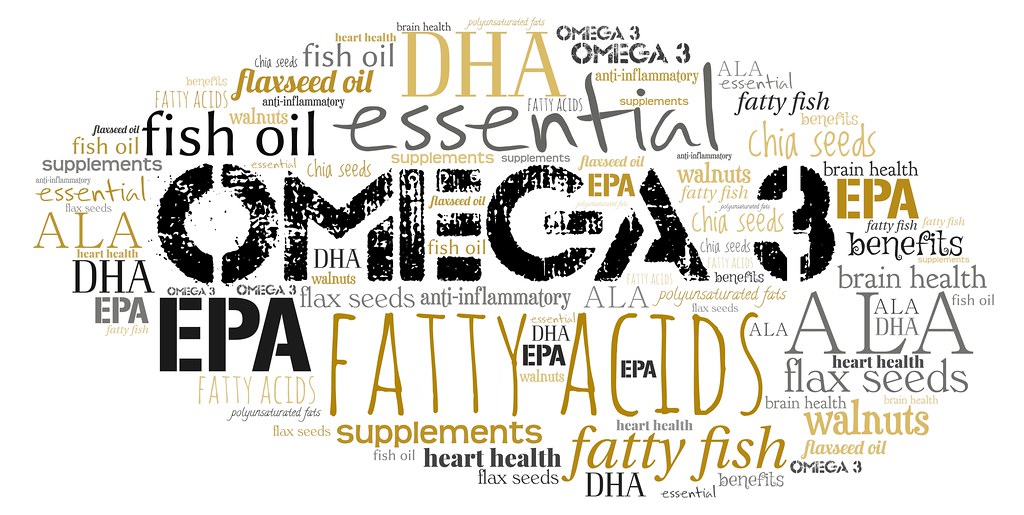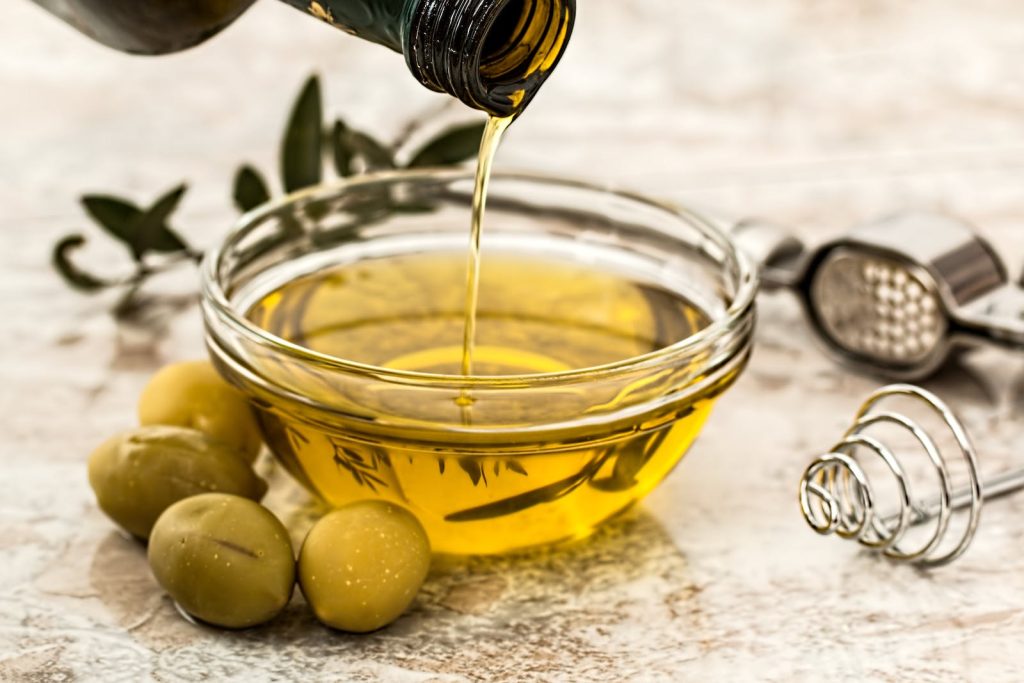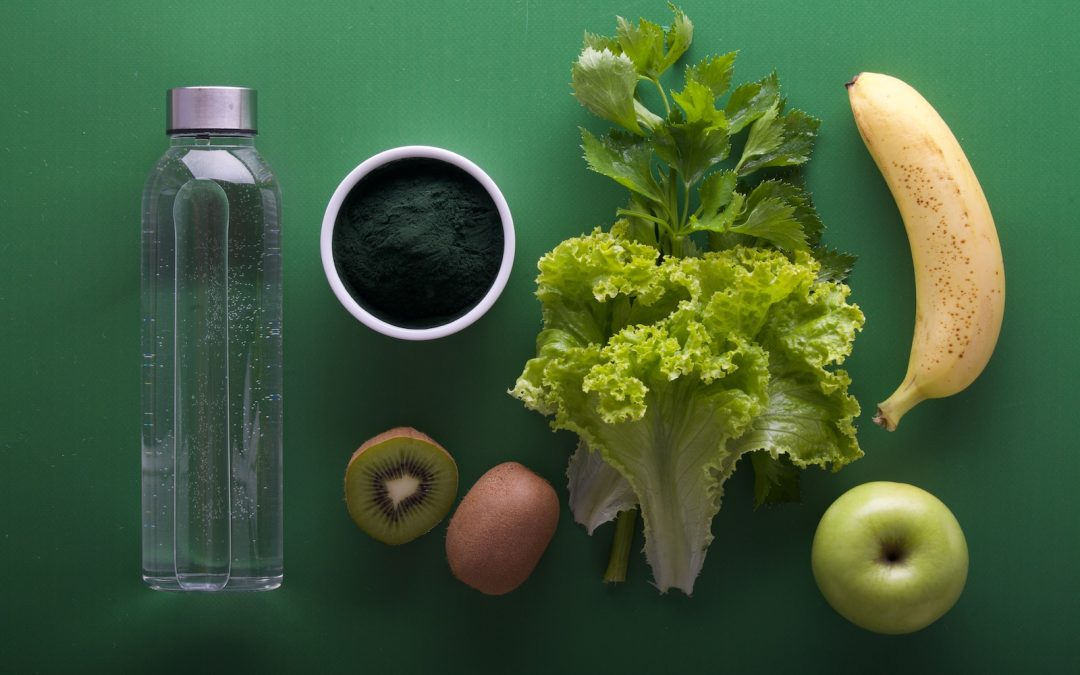
by Health And Healing AI | Oct 27, 2023 | Health
Mackerel Magic: Why You Should Add This Superfood to Your Diet NOW
Unlocking the Power of Mackerel: Are you looking for a tasty and healthy addition to your diet? Look no further than mackerel! This oily fish is packed with nutrients that can benefit your overall health. Mackerel is a major source of omega-3 fatty acids, which are essential for brain function and can help reduce inflammation in the body. In fact, mackerel contains more omega-3s than many other types of fish.
Not only is mackerel good for your brain and body, but it can also benefit your heart health. The omega-3s found in mackerel can help lower blood pressure and reduce levels of cholesterol in the body. Additionally, mackerel is a useful source of vitamin B12, which is important for maintaining a healthy heart.

Mackerel’s Protein Punch: Fuel Your Muscles and Stay Fit. Photo by Mak_ jp
If you’re looking for a flavorful and nutritious addition to your meals, consider incorporating mackerel into your diet. Whether you grill it, bake it, or enjoy it in a salad, this fish is an excellent choice for your overall health.
What is Mackerel?
Mackerel is a type of oily fish that is found in both temperate and tropical seas. It is part of the Scombridae family, which also includes tuna and bonito. Mackerel is known for its slim shape, numerous finlets, and oily meat. It comes in several types, including Cero, Atlantic, King, and Spanish mackerel.
Mackerel is a popular fish in many cuisines around the world, and it is often smoked, grilled, or fried. It is also a reliable source of nutrition, as it is rich in vitamins, minerals, and omega-3 fatty acids.
One of the most notable features of mackerel is its high omega-3 content. Omega-3s are a type of polyunsaturated fatty acid that is essential for good health. They are known to reduce inflammation, lower blood pressure, and decrease the risk of heart disease.
In addition to omega-3s, mackerel is also a useful source of vitamin B12, which is important for healthy nerve function and the production of red blood cells. It also contains niacin, iron, vitamin B6, riboflavin, magnesium, phosphorus, folate, and selenium.
Overall, mackerel is a nutritious and delicious fish that can provide many health benefits when included as part of a balanced diet.
Nutritional Profile of Mackerel
Mackerel is a nutrient-dense fish that provides a range of essential vitamins and minerals. Here are some of the key nutritional benefits of mackerel:
Omega-3 Fatty Acids

Uncover the astonishing health benefits of mackerel and revitalize your lifestyle with this superfish. Omega 3
Mackerel is an excellent source of omega-3 fatty acids, which are essential for maintaining good health. Omega-3s are important for reducing inflammation, improving brain function, and supporting heart health. A 3.5-ounce serving of mackerel contains approximately 2.6 grams of omega-3 fatty acids.
Protein Content
Mackerel is also a major source of protein, which is essential for building and repairing tissues in the body. A 3.5-ounce serving of mackerel contains about 19 grams of protein. This makes it a great food choice for athletes or anyone looking to build muscle mass.
Vitamins and Minerals
Mackerel is packed with a variety of essential vitamins and minerals. Here are some of the key nutrients found in mackerel:
- Vitamin B12: Mackerel is an excellent source of vitamin B12, which is essential for maintaining a healthy nervous system and producing DNA.
- Vitamin D: Mackerel is one of the few food sources of vitamin D, which is important for bone health and immunity.
- Selenium: Mackerel is a useful source of selenium, which is important for thyroid function and immune system health.
- Magnesium: Mackerel is also a thorough source of magnesium, which is important for maintaining healthy bones and regulating blood pressure.
Overall, mackerel is a nutritious and delicious fish that provides a range of essential nutrients. Incorporating mackerel into your diet can help improve your overall health and well-being.
Health Benefits of Mackerel
Mackerel is a nutritious fish that is packed with essential nutrients. Here are some of the health benefits of mackerel:
Heart Health
Mackerel is rich in omega-3 fatty acids, which can help reduce inflammation in the body and lower the risk of heart disease. Omega-3s can also help to reduce triglycerides and improve cholesterol levels, which can further support heart health.
Brain Function
The omega-3 fatty acids found in mackerel are also important for brain function. These fatty acids can help to improve cognitive function and reduce the risk of age-related cognitive decline.
Bone Health
Unlocking the Power of Mackerel: Mackerel is a reliable source of vitamin D, which is important for bone health. Vitamin D helps the body to absorb calcium, which is essential for strong bones. Mackerel is also a useful source of vitamin K, which can help to improve bone density and reduce the risk of fractures.
Overall, mackerel is a nutritious fish that can provide a range of health benefits. Incorporating mackerel into your diet can help to support heart health, brain function, and bone health.
Mackerel in a Balanced Diet
Mackerel is a nutritious fish that can be a fantastic addition to a balanced diet. It is packed with essential nutrients that can help keep your body healthy. Here are some tips on how to incorporate mackerel into your diet.
Incorporating Mackerel
Mackerel can be a versatile ingredient that can be used in many different dishes. Here are some ideas on how to incorporate mackerel into your meals:
- Grilled or baked mackerel can be served as a main course with a side of vegetables or salad.
- Mackerel can be used in a salad, sandwich, or wrap for a quick and easy lunch.
- Mackerel can be added to pasta dishes, stir-fries, and soups for an extra boost of protein and flavor.
Serving Suggestions
Mackerel can be served in many ways. Here are some serving suggestions to help you get started:
| Serving Suggestions |
|---|
| Grilled or baked with lemon and herbs |
| Pan-fried with garlic and ginger |
| Smoked and served with crackers and cheese |
| Canned and added to sandwiches or salads |
When buying mackerel, choose fresh or frozen fish that is firm and has a bright color. Avoid fish that look dull or have a strong odor. Mackerel is a fatty fish, so it is important to watch your portion sizes. A serving size of mackerel is about 3.5 ounces, which is the size of a deck of cards.
Incorporating mackerel into your diet can be a wonderful way to add variety and nutrition to your meals. Try out some of these serving suggestions and see how you like them!
Potential Risks and Considerations
Mercury Levels
Mackerel is a type of fish that is high in mercury content. Mercury is a toxic element that can cause harm to your nervous system, especially in developing fetuses and young children. You should limit your intake of mackerel to avoid consuming too much mercury. According to the FDA, pregnant women, nursing mothers, and young children should avoid eating mackerel altogether.
The mercury content in mackerel can vary depending on the type of mackerel and where it was caught. To reduce your risk of mercury exposure, you should choose smaller mackerel species, such as Atlantic mackerel, which tend to have lower mercury levels than larger species like king mackerel.
Allergies
Mackerel is also a common allergen, and some people may experience allergic reactions after consuming it. Symptoms of an allergic reaction to mackerel can include hives, itching, swelling, and difficulty breathing. If you have a known allergy to fish, you should avoid consuming mackerel and other types of fish to prevent an allergic reaction.
If you are unsure whether you are allergic to mackerel or other types of fish, you should talk to your doctor before adding it to your diet. Your doctor may recommend an allergy test to determine whether you are allergic to mackerel or other types of fish. If you experience any symptoms of an allergic reaction after consuming mackerel, you should seek medical attention immediately.
Research on Mackerel’s Health Benefits
Mackerel is a nutrient-dense fish that is packed with essential vitamins and minerals. It is also a rich source of omega-3 fatty acids, which have been linked to numerous health benefits. Here are some of the key findings from research on mackerel’s health benefits:
- Heart Health: Mackerel is rich in omega-3 fatty acids, which have been shown to reduce the risk of heart disease. A study published in the American Journal of Clinical Nutrition found that consuming mackerel oil supplements led to a significant reduction in triglyceride levels and an improvement in HDL cholesterol levels, both of which are important markers of heart health.
- Brain Health: Omega-3 fatty acids have also been linked to improved brain function and a reduced risk of cognitive decline. A study published in the Journal of Alzheimer’s Disease found that consuming mackerel oil supplements led to improvements in memory and cognitive function in older adults.
- Eye Health: Mackerel is a rich source of vitamin A, which is essential for eye health. A study published in the journal Nutrients found that consuming mackerel led to improvements in visual acuity and contrast sensitivity in healthy adults.
- Bone Health: Mackerel is a reliable source of vitamin D, which is important for bone health. A study published in the Journal of Bone and Mineral Research found that consuming mackerel led to improvements in bone mineral density in older women.
- Inflammation: Mackerel is rich in anti-inflammatory compounds, which may help reduce inflammation in the body. A study published in the journal Nutrients found that consuming mackerel led to a reduction in markers of inflammation in healthy adults.
Overall, research suggests that consuming mackerel regularly may offer a range of health benefits. However, it is important to note that more research is needed to fully understand the effects of mackerel on health.
Conclusion
Incorporating mackerel into your diet can provide numerous health benefits. This fatty fish is an excellent source of protein, vitamin B12, and omega-3 fatty acids.
Consuming mackerel can help improve heart health by reducing the risk of heart disease and stroke. It can also boost brain function and may even help prevent depression.
Mackerel is also a great food choice for those looking to build and maintain muscle due to its high protein content. Additionally, it can aid in weight loss efforts as it is low in calories and high in satiating protein.
When purchasing mackerel, it is important to look for wild-caught sources to avoid potential contamination from pollutants. Canned mackerel can also be a convenient and affordable option, but it is important to choose varieties that are packed in water rather than oil to avoid excess added fats.
Overall, adding mackerel to your diet is a delicious and nutritious way to support your overall health and well-being. Looking to make some Food Choices? CLICK HERE!

by Health And Healing AI | Oct 26, 2023 | Health
Sipping for Wellness: The Epic Battle – Brandy vs. Whisky
Are you a fan of distilled spirits but wondering which one is better for your health – brandy or whisky? While both are popular choices, they differ in production, taste, and health benefits. In this article, we’ll explore the differences between brandy and whisky, and which one is the best for your health.
Brandy is made from fermented wine or fruit and is aged in oak barrels. On the other hand, whisky is made from barley, wheat, rye, or corn and is also aged in oak barrels. Both spirits offer health benefits when consumed in moderation. For example, brandy is a reliable source of antioxidants, which can help support the body’s natural ability to fight off disease and illness. Whisky, on the other hand, has elevated levels of polyphenols, and plant-based antioxidants linked with lowering your risk of heart disease.
So, which one is better for your health – brandy or whisky? The answer is not so straightforward. It depends on your personal preferences and health goals. In the following sections, we’ll dive deeper into the differences between brandy and whisky and their respective health benefits.
Understanding Brandy and Whisky
What is Brandy?

A Toast to Health: Exploring the Surprising Benefits of Brandy and Whisky. Photo by Louis Hansel
Brandy is a type of distilled spirit made from fermented fruit juice, usually grapes. The process involves heating the wine to separate the alcohol from the water and other impurities. The resulting liquid is then aged in oak barrels, which gives it its distinct flavor and color.
Brandy has a lighter and sweeter flavor compared to whisky. It’s often enjoyed as an after-dinner drink due to its smoothness and sweetness. Some brandies have flavors like caramel, vanilla, banana, fig, and prune, making them ideal for sipping neat or with ice.
What is Whisky?
Whisky, on the other hand, is a type of distilled spirit made from fermented grain mash. The grains used in whisky production can vary, including barley, corn, rye, and wheat. The process involves distilling the fermented mash and then aging it in oak barrels.
Whisky has a stronger flavor compared to brandy, with notes of grain, oak, tobacco, and malt. Some whiskies have a spicy and cinnamon finish, making them suitable for mixing in cocktails or sipping neat.
Both brandy and whisky have their unique flavor profiles, and it’s up to personal preference which one is better. However, when it comes to health benefits, both have some positives.
Brandy, for instance, contains antioxidants that can help protect the body from damage caused by free radicals. It can also help improve digestion and circulation. Whisky, on the other hand, has been linked to reducing the risk of heart disease and stroke, thanks to its high levels of ellagic acid.
In conclusion, both brandy and whisky can be enjoyed in moderation and have their unique health benefits. It’s essential to remember that excessive alcohol consumption can have adverse effects on your health, so it’s best to drink responsibly.
Nutritional Comparison
When it comes to comparing the nutritional value of brandy and whisky, there are a few key factors to consider. Below, we’ll take a closer look at the caloric content, vitamin, and mineral content of these two popular spirits.
Caloric Content
Both brandy and whisky are low in calories compared to other alcoholic beverages. However, brandy tends to have a slightly lower caloric content than whisky. On average, a 1.5-ounce serving of brandy contains around 100 calories, while the same serving size of whisky contains around 105 calories.
It’s worth noting that the caloric content of these spirits can vary depending on factors such as the specific type of brandy or whisky and the alcohol content. Additionally, if you mix your brandy or whisky with sugary mixers, the caloric content will increase significantly.
Vitamin and Mineral Content
While brandy and whisky are not typically considered significant sources of vitamins and minerals, they do contain some beneficial compounds. Both spirits are made from fermented and distilled grains or fruit, which can provide some antioxidant and anti-inflammatory benefits.
Brandy is made from grapes and can contain some of the same beneficial compounds found in red wine, such as resveratrol. However, the distillation process can also remove some of these compounds.
On the other hand, whisky is often aged in oak barrels, which can provide some additional flavor and potentially some trace minerals such as magnesium and potassium.
Overall, while brandy and whisky do not provide significant amounts of vitamins and minerals, they can still be enjoyed in moderation as part of a balanced diet.
Health Benefits
When it comes to alcohol, it’s important to remember that moderation is key. Drinking too much of any type of alcohol can have negative effects on your health. However, when consumed in moderation, both brandy and whisky can offer some health benefits.
Benefits of Brandy
Brandy is made by distilling wine, and it contains antioxidants that can help protect your cells from damage caused by free radicals. Brandy also contains ellagic acid, a compound that has been shown to have anti-carcinogenic properties. Additionally, brandy can help improve your heart health by increasing blood flow and reducing inflammation.
Benefits of Whisky
Whisky is made from grains like barley, wheat, rye, and corn, and it also contains antioxidants that can help protect your cells from damage. Like brandy, whisky also contains ellagic acid, which can help reduce your risk of cancer. Whisky has also been shown to help improve your heart health by reducing inflammation and increasing blood flow.
Overall, both brandy and whisky can offer some health benefits when consumed in moderation. However, it’s important to remember that excessive drinking can have negative effects on your health. It’s recommended that men limit their alcohol consumption to two drinks per day, and women limit their consumption to one drink per day.
Potential Risks
When it comes to drinking alcohol, it is important to be aware of the potential risks. Both brandy and whisky can have negative effects on your health if consumed in excess. Here are some potential risks to keep in mind:
Risks of Brandy
- Alcoholism: Brandy, like any other alcoholic beverage, can be addictive. Drinking too much brandy can lead to alcoholism, which can cause a range of health problems.
- Liver damage: Excessive consumption of brandy can lead to liver damage. The liver is responsible for breaking down alcohol, and over time, excessive drinking can cause inflammation and scarring of the liver.
- Increased risk of cancer: Studies have shown that heavy drinking can increase the risk of certain types of cancer, including liver, breast, and colon cancer. While moderate drinking may not significantly increase your risk of cancer, it is important to be mindful of your alcohol consumption.
Risks of Whisky
- Alcoholism: Like brandy, whisky can be addictive. Drinking too much whisky can lead to alcoholism, which can cause a range of health problems.
- Increased risk of accidents: Drinking whisky can impair your judgment and coordination, increasing your risk of accidents and injuries.
- Increased risk of heart disease: While moderate drinking may have some benefits for heart health, excessive drinking can increase your risk of heart disease. It is important to be mindful of your alcohol consumption and to talk to your doctor about any potential risks.
Overall, it is important to be mindful of your alcohol consumption and to drink in moderation. While both brandy and whisky may have some potential health benefits, excessive drinking can lead to a range of health problems.
Moderation and Health

Cheers to Your Well-being: The Great Brandy vs. Whisky Showdown. Photo by Charlotte May
When it comes to alcohol consumption, moderation is key. Both brandy and whisky can offer health benefits when consumed in moderation. However, excessive drinking can lead to serious health problems, including liver disease, high blood pressure, and an increased risk of cancer.
According to the CDC’s 2020-2025 Dietary Guidelines for Americans, adults of legal drinking age can choose not to drink, or to drink in moderation. For men, this means no more than two drinks per day, and for women, no more than one drink per day.
Moderate alcohol consumption has been associated with a reduced risk of heart disease, stroke, and type 2 diabetes. Both brandy and whisky contain antioxidants that can help protect against oxidative stress, which has been linked to several health problems.
Brandy is made from fermented fruit, which means it contains more antioxidants than whisky. Studies have shown that moderate brandy consumption can improve heart health and reduce the risk of certain cancers.
Whisky, on the other hand, contains more ellagic acid than brandy. Ellagic acid is a powerful antioxidant that has been shown to have anti-inflammatory properties and can help protect against certain types of cancer.
In conclusion, both brandy and whisky can offer health benefits when consumed in moderation. However, it is important to remember that excessive drinking can have serious health consequences. Stick to the CDC’s guidelines and enjoy your brandy or whisky in moderation.
Expert Opinions
When it comes to determining which is healthier brandy and whiskey, there are differing opinions from experts in the field. Here are a few perspectives:
- According to a registered dietitian, Natalie Rizzo, both brandy and whiskey contain antioxidants that can help reduce inflammation and protect against certain diseases. However, she notes that brandy may have a slight edge in terms of health benefits due to its higher antioxidant content from the grapes used to make it.
- On the other hand, a clinical nutritionist, Dr. Josh Axe suggests that whiskey may be the better choice for health due to its higher concentration of ellagic acid, a compound that has been shown to have anti-cancer properties.
- A study published in the journal Food Chemistry found that both brandy and whiskey contain similar levels of phenolic compounds, which are known to have antioxidant properties. However, the study did note that brandy had slightly higher levels of certain phenolic compounds, such as gallic acid.
- Another study published in the Journal of Agricultural and Food Chemistry found that both brandy and whiskey can help improve heart health by reducing inflammation and improving circulation. However, the study did note that brandy had a slightly more significant effect on improving circulation.
Overall, it seems that both brandy and whiskey have their own unique health benefits and can be enjoyed in moderation as part of a healthy lifestyle. As always, it’s important to drink responsibly and consult with a healthcare professional if you have any concerns about alcohol consumption.
Conclusion
In conclusion, both brandy and whisky have unique characteristics and flavors. While brandy is considered good for the body due to its antioxidant content, whisky has also been linked to health benefits such as a lower risk of heart disease.
When it comes to choosing between the two, it depends on personal preference and moderation. Both brandy and whisky should be consumed in moderation to avoid negative health effects. The CDC recommends limiting alcohol to two drinks a day if you’re male and 1 if you’re female.
It’s important to note that excessive alcohol consumption can lead to negative health effects such as liver damage, high blood pressure, and increased risk of certain cancers. Therefore, it’s important to drink responsibly and in moderation.
If you’re looking for a healthier option, consider drinking red wine, tequila, or hard kombucha, which are all healthier options than beer and sugary drinks. However, it’s important to remember that even these healthier options should be consumed in moderation.

by Health And Healing AI | Oct 26, 2023 | Health
A Health Comparison of Butter or Olive Oil
Are you curious about which cooking fat is healthier: butter or olive oil? This is a question that has been debated for years, and with good reason. Both butter and olive oil are commonly used in cooking and baking, and each has its own unique benefits and drawbacks. In this article, we will explore the health benefits and nutritional differences between butter and olive oil to help you make an informed decision about which one to use in your cooking.
Butter is a dairy product made from churning cream or milk. It is high in saturated fat, which has been linked to an increased risk of heart disease and other health problems. However, butter is also a useful source of vitamins A, D, E, and K, as well as calcium and phosphorus. On the other hand, olive oil is a plant-based oil that is rich in monounsaturated and polyunsaturated fats, which have been shown to have numerous health benefits. Olive oil is also high in antioxidants, which can help protect against oxidative damage and inflammation in the body.
So, which one is healthier: butter or olive oil? The answer is not clear-cut,

The Great Debate: Butter vs. Olive – A Clash of Flavors and Benefits. Photo by Pixabay
as both have their own unique benefits and drawbacks. However, by understanding the nutritional differences between the two, you can make an informed decision about which one to use in your cooking and baking.
Butter and Olive Oil: A Brief Overview

When it comes to cooking and baking, butter and olive oil are two of the most used ingredients. Both have their unique flavors and textures, but they also have different nutritional profiles. Here’s a brief overview of the differences between butter and olive oil:
Butter
Butter is a dairy product made from churning cream or milk. It has a rich, creamy flavor and is commonly used in baking, cooking, and as a spread. Butter is high in saturated fat, which can increase your risk of heart disease and other health problems when consumed in excess. However, it also contains vitamins A, D, and E, as well as some trace minerals.
Olive Oil
Olive oil is a staple ingredient in Mediterranean cuisine and is made by pressing whole olives. It has a fruity, slightly bitter taste and is commonly used in cooking, salad dressings, and as a dip for bread. Olive oil is high in monounsaturated fats, which can help lower your risk of heart disease and other health problems. It also contains antioxidants and anti-inflammatory compounds.
Comparison
Here’s a quick comparison of the nutritional profiles of butter and olive oil:
| Nutrient | Butter (1 tbsp) | Olive Oil (1 tbsp) |
|---|
| Calories | 102 | 119 |
| Total Fat | 12 g | 14 g |
| Saturated Fat | 7.5 g | 2 g |
| Monounsaturated Fat | 3 g | 10 g |
| Polyunsaturated Fat | 0.5 g | 1.5 g |
| Vitamin A | 355 IU | 0 IU |
| Vitamin E | 0.3 mg | 1.9 mg |
As you can see, butter is higher in calories and saturated fat, while olive oil is higher in monounsaturated fat and vitamin E. While both can be used in cooking and baking, it’s important to consider the nutritional profile of each when making your choices.
Nutritional Composition of Butter
When it comes to comparing the nutritional composition of butter and olive oil, it’s important to understand what each has to offer. Butter is a dairy product made by churning cream or milk, while olive oil is made from pressing olives. Here’s a breakdown of the nutritional composition of butter:
- Fat content: Butter is primarily made up of fat, with approximately 80% of its calories coming from fat. It contains both saturated and unsaturated fats, with saturated fats making up about half of the total fat content.
- Vitamins: Butter is a useful source of vitamin A, with one tablespoon providing about 11% of the recommended daily intake. It also contains lesser amounts of vitamin D, vitamin E, and vitamin K.
- Minerals: Butter is a reliable source of calcium, with one tablespoon providing about 1% of the recommended daily intake. It also contains lesser amounts of iron, magnesium, phosphorus, and potassium.
- Cholesterol: Butter is high in cholesterol, with one tablespoon containing about thirty-one milligrams. This is approximately 10% of the recommended daily intake.
Overall, while butter does contain some beneficial nutrients, it is high in saturated fat and cholesterol, which can have negative impacts on your health if consumed in excess. It’s important to consume butter in moderation as part of a balanced diet.
Nutritional Composition of Olive Oil
If you are looking for a healthier alternative to butter, olive oil can be a great option. Olive oil is a staple in the Mediterranean diet and has been praised for its health benefits. Here is a breakdown of the nutritional composition of olive oil:
Calories
Olive oil is high in calories, with one tablespoon containing around 120 calories. However, it is important to note that olive oil is a healthy fat and can be part of a balanced diet.
Fat
Olive oil is a reliable source of monounsaturated fat, which is considered a healthy fat. One tablespoon of olive oil contains around fourteen grams of fat, with only 2 grams being saturated fat.
Vitamins and Minerals
Olive oil is a useful source of vitamin E, which is an antioxidant that helps protect your cells from damage. It also contains lesser amounts of vitamin K and vitamin A.
Other Compounds
Olive oil is rich in polyphenols, which are plant compounds that have antioxidant properties. These compounds have been linked to various health benefits, including reduced inflammation and lower risk of chronic diseases.
In summary, olive oil is a healthy fat that can be a great alternative to butter. It is high in calories and fat, but it is also rich in vitamins, minerals, and other beneficial compounds. Incorporating olive oil into your diet can help improve your overall health.
Comparing Saturated and Unsaturated Fats
When it comes to choosing between butter and olive oil, one of the key factors to consider is the type of fat they contain. Butter is a source of saturated fat, while olive oil is a source of unsaturated fat. Here’s how they compare:
Saturated Fat
Saturated fat is typically solid at room temperature and is found in animal products such as butter, cheese, and meat. According to the Mayo Clinic, a diet high in saturated fat can raise your LDL (bad) cholesterol levels, which can increase your risk of heart disease and stroke.
Butter is a particularly high source of saturated fat. In fact, it contains 183% more saturated fat than olive oil, according to Food Struct. This means that if you’re looking to reduce your intake of saturated fat, you may want to limit your consumption of butter.
Unsaturated Fat
Unsaturated fat, on the other hand, is typically liquid at room temperature and is found in plant products such as olive oil, nuts, and seeds. According to Verywell Health, a diet high in unsaturated fat can help lower your LDL (bad) cholesterol levels and reduce your risk of heart disease and stroke.
Olive oil is a particularly high source of unsaturated fat. It contains more unsaturated fat than butter, according to Food Struct. This means that if you’re looking to increase your intake of unsaturated fat, you may want to choose olive oil over butter.
Overall, when it comes to choosing between butter and olive oil, it’s important to consider the type of fat they contain. While butter is a high source of saturated fat, olive oil is a high source of unsaturated fat.
Impact on Heart Health
When it comes to heart health, butter and olive oil have different effects. Here’s what you need to know:
Butter’s Effect on Heart Health
Butter is high in saturated fat, which can raise your LDL (bad) cholesterol levels and increase your risk of heart disease. According to the American Heart Association, you should limit your intake of saturated fat to less than 7% of your daily calories.
One tablespoon of butter contains about 7 grams of saturated fat, which is 35% of your recommended daily intake if you’re following a 2,000-calorie diet. That’s why it’s recommended to use butter in moderation.
Olive Oil’s Effect on Heart Health
Unlike butter, olive oil is a healthy fat that can actually improve your heart health. It’s high in monounsaturated and polyunsaturated fats, which can lower your LDL (bad) cholesterol levels and reduce your risk of heart disease.
According to a systematic review and meta-analysis of butter consumption, substituting 8 grams of olive oil for an equivalent amount of butter was associated with an 8% reduction in the risk of type 2 diabetes.
In addition, olive oil is rich in antioxidants, which can protect your heart from oxidative stress and inflammation. It’s also been shown to improve endothelial function, which is important for blood flow and overall heart health.
To reap the heart-healthy benefits of olive oil, it’s recommended to use it as a replacement for butter and other unhealthy fats in your diet. Aim for about 2 tablespoons of olive oil per day as part of a healthy diet.
Overall, when it comes to heart health, olive oil is a better choice than butter.
Role in Weight Management
When it comes to weight management, both butter and olive oil can play a role in your diet. However, it’s important to keep in mind that both are high in calories and fat, so moderation is key.
Butter and Weight
Butter is a high-calorie food, with approximately 102 calories per tablespoon. It also contains a high amount of saturated fat, which can contribute to weight gain and increase the risk of heart disease. However, butter does contain some beneficial nutrients, such as vitamin A and vitamin K.
If you enjoy the taste of butter, there are ways to incorporate it into your diet without going overboard. For example, you can use a small amount of butter to sauté vegetables or spread a thin layer on whole grain toast.
Olive Oil and Weight
Olive oil is also a high-calorie food, with approximately 120 calories per tablespoon. However, it contains healthy monounsaturated fats, which can help reduce the risk of heart disease and promote weight loss.
Studies have shown that consuming olive oil can increase feelings of fullness and help you eat fewer calories overall. It’s also a great alternative to other oils when cooking, as it has a higher smoke point and can be used at higher temperatures.
Incorporating olive oil into your diet can be as simple as drizzling it over a salad or using it to roast vegetables. However, it’s important to keep in mind that even healthy oils should be consumed in moderation to maintain a healthy weight.
Overall, both butter and olive oil can play a role in a healthy diet. However, when it comes to weight management, it’s important to use them in moderation and incorporate them into a balanced diet that includes plenty of fruits, vegetables, lean protein, and whole grains.
Cooking: Butter Vs Olive Oil

Battle of the Fats: Butter vs. Olive – Which One Wins Your Health? Photo by Sorin Gheorghita
When it comes to cooking, both butter and olive oil have their advantages and disadvantages. Here are some factors to consider:
Smoke Point
Butter has a lower smoke point than olive oil, which means it can burn at lower temperatures. This can be a problem when frying or sautéing at high heat. Olive oil has a higher smoke point, making it a better choice for high-heat cooking.
Flavor
Butter has a rich, creamy flavor that is hard to beat. It can add depth and richness to baked goods, sauces, and other dishes. Olive oil, on the other hand, has a more subtle flavor that can enhance the natural flavors of ingredients without overpowering them.
Nutritional Value
When it comes to nutritional value, olive oil is the clear winner. It is high in monounsaturated fats, which have been shown to improve heart health. Butter, on the other hand, is high in saturated fat, which can raise cholesterol levels and increase the risk of heart disease.
Versatility
Both butter and olive oil can be used in a variety of dishes, but they each have their strengths. Butter is great for baking, sautéing, and making sauces, while olive oil is perfect for roasting vegetables, grilling meats, and making salad dressings.
In conclusion, both butter and olive oil have their place in the kitchen. Consider the smoke point, flavor, nutritional value, and versatility when choosing which one to use in your next dish.
Final Thoughts: Which is Healthier?
When it comes to the debate between butter and olive oil, the answer is not so simple. Both have their benefits and drawbacks, and the decision ultimately comes down to personal preference and dietary needs.
If you are looking for a healthier option, olive oil is considered the better choice due to its higher percentage of healthy fats, particularly monounsaturated fats. Butter, on the other hand, is mostly made up of saturated fat, which can have negative effects on heart health if consumed in excess.
However, butter can be a reliable source of certain vitamins, such as vitamin A and vitamin B12, that are not as abundant in olive oil. Additionally, butter has a richer flavor that some people prefer over the taste of olive oil.
When choosing between the two, it is important to consider your dietary needs and goals. If you are following a low-carb diet, olive oil may be the better option due to its lower-carb content. If you are looking to increase your intake of certain vitamins, butter may be the way to go.
Overall, both butter and olive oil can be part of a healthy diet when consumed in moderation. It is important to choose high-quality, minimally processed versions of both and to use them in appropriate amounts to avoid negative health effects.
Conclusion
In summary, both butter and olive oil have their pros and cons when it comes to health benefits. Butter is a saturated fat, which has been linked to an increased risk of heart disease, but it also contains important nutrients like vitamins A and D. On the other hand, olive oil is a monounsaturated fat, which has been shown to have heart-protective benefits, but it is also high in calories.
When it comes to cooking, it’s important to consider the smoke point of each oil. Butter has a lower smoke point than olive oil, which means it can burn at hot temperatures. Olive oil, on the other hand, has a higher smoke point and is better suited for high-heat cooking methods like sautéing and frying.
If you’re looking to reduce your saturated fat intake, replacing butter with olive oil is a desirable choice. However, it’s important to keep in mind that olive oil is still high in calories, so it should be used in moderation.
The choice between butter and olive oil comes down to personal preference and dietary needs. Both can be part of a healthy diet when consumed in moderation and as part of a balanced meal plan.

by Health And Healing AI | Oct 26, 2023 | Health
A Natural Way to Boost Your Health with Bissy Tea
If you are looking for a natural way to improve your overall health, you may want to consider adding bissy tea to your daily routine. Bissy tea, also known as kola nut tea, is a popular beverage in Jamaica and other parts of the world. It is made from the seeds of the kola nut tree, which is native to Africa.
One of the most well-known benefits of bissy tea is its caffeine content. This natural stimulant can help increase your level of alertness and improve your mental focus. Additionally, bissy tea has been shown to have anti-inflammatory properties, which can help reduce pain and swelling in the body. Some people also use bissy tea as a natural remedy for migraines and other types of headaches.
Another potential benefit of bissy tea is its ability to help regulate blood sugar levels. This can be especially beneficial for people with diabetes or other blood sugar disorders. Additionally, bissy tea may help promote weight loss by suppressing your appetite and increasing your metabolism. If you are looking for a natural way to improve your health, bissy tea may be an excellent choice.

From Traditional Roots to Modern Wellness: Bissy Tea’s Healing Properties. Photo by Debby Hudson
What is Bissy Tea?
Bissy tea is a hot beverage made from the powdered seeds of the kola nut tree, which is native to Africa. The kola nut tree is also known as Cola acuminata or Cola nitida, and its nuts are called bissy in Jamaica. Bissy tea is a popular drink in Jamaica and other parts of the world, and it is known for its potential health benefits.
Bissy tea contains caffeine, which is a natural stimulant that can help increase your level of alertness. It is also rich in antioxidants, which can help protect your body from damage caused by free radicals. Some studies suggest that bissy tea may have other potential health benefits as well, such as improving respiratory health, aiding digestion, reducing inflammation, and relieving migraine headaches.
To make bissy tea, you will need to grind the seeds of the kola nut tree into a fine powder. You can then add the powder to hot water and steep it for several minutes. Some people like to add sugar or honey to their bissy tea to sweeten it, while others prefer to drink it plain.
If you are interested in trying bissy tea, you can find it at some health food stores or online retailers. It is important to note that bissy tea contains caffeine, so you should avoid drinking it in copious amounts or late in the day if you are sensitive to caffeine. Additionally, if you have any medical conditions or are taking any medications, you should talk to your doctor before trying bissy tea to make sure it is safe for you to consume.
Health Benefits of Bissy Tea
If you’re looking for a natural way to boost your health, bissy tea might be just what you need. This tea, made from the kola nut, has been used for centuries in Jamaica as a home remedy for a variety of ailments. Here are some of the potential health benefits of bissy tea:
Boosts Immune System
Bissy tea is rich in antioxidants, which can help to boost your immune system and protect your body against harmful free radicals. Antioxidants have been shown to reduce the risk of chronic diseases such as cancer, heart disease, and Alzheimer’s.
Promotes Digestive Health
Bissy tea has natural anti-inflammatory properties that can help to soothe the digestive system and reduce inflammation in the gut. This makes it a great choice for people who suffer from conditions such as irritable bowel syndrome (IBS) or inflammatory bowel disease (IBD).
Aids in Weight Loss
Bissy tea contains caffeine, which can help to boost your metabolism and increase your energy levels. This can help you to burn more calories and lose weight more effectively. Additionally, bissy tea has been shown to help regulate blood sugar levels, which can also aid in weight loss.
Relieves Pain and Inflammation
Bissy tea has natural pain-relieving properties, making it a wonderful choice for people who suffer from chronic pain conditions such as arthritis. Additionally, bissy tea has been shown to reduce inflammation throughout the body, which can help to alleviate symptoms of conditions such as asthma and allergies.
Overall, bissy tea is a natural and healthy way to boost your health and wellbeing. Whether you’re looking to improve your immune system, promote digestive health, lose weight, or relieve pain and inflammation, bissy tea may be just what you need.
How to Prepare Bissy Tea
Preparing Bissy Tea is a straightforward process that involves boiling the nut until it is drinkable in tea form. Here are the steps to make Bissy Tea:
- Start by breaking down the nut into smaller pieces using a hammer or a nutcracker.
- Place the nut pieces into a pot with enough water to cover them.
- Bring the water to a boil and let it simmer for about 30 minutes to an hour, depending on how strong you want your tea.
- Strain the liquid through a fine mesh strainer or cheesecloth to remove any nut particles.
- Sweeten with honey or sugar to taste, if desired.
Alternatively, you can use bissy powder to make Bissy Tea. Here’s how:
- Add one tablespoon of bissy powder to a cup of boiling water.
- Let it steep for 5-10 minutes.
- Strain the liquid through a fine mesh strainer or cheesecloth to remove any powder particles.
- Sweeten with honey or sugar to taste, if desired.
It’s important to note that Bissy Tea has a bitter taste, so you may want to sweeten it to make it more palatable. Also, be sure to drink it in moderation as excessive consumption may lead to adverse effects.
Potential Side Effects of Bissy Tea
While bissy tea has many potential health benefits, it is important to be aware of its potential side effects. In this section, we will discuss two potential side effects of bissy tea: allergic reactions and interactions with medications.
Allergic Reactions
Bissy tea is made from kola nut seeds, which are a known allergen for some people. If you are allergic to kola nut or other nuts, you should avoid drinking bissy tea. Symptoms of an allergic reaction to kola nut may include hives, itching, swelling, difficulty breathing, and anaphylaxis. If you experience any of these symptoms after drinking bissy tea, seek medical attention immediately.
Interactions with Medications
Bissy tea contains caffeine, which can interact with certain medications. If you are taking medications for high blood pressure, diabetes, or depression, you should talk to your doctor before drinking bissy tea. Caffeine can increase blood pressure and blood sugar levels, and it can also interact with some antidepressant medications. Additionally, if you are taking any medications that are processed by the liver, such as some antibiotics, drinking bissy tea may interfere with their effectiveness.
It is important to note that bissy tea should not be used as a substitute for medical treatment. If you have any health concerns or are taking any medications, you should talk to your doctor before drinking bissy tea or any other herbal remedies.
Conclusion
In conclusion, bissy tea is a powerful addition to a healthy lifestyle. It is a natural remedy that offers numerous health benefits, including the potential to stimulate, detoxify, and boost your immune system. Bissy tea is also an excellent source of antioxidants, which can help protect against free radical damage and reduce inflammation.
Additionally, bissy tea may have antibacterial properties, making it a potential treatment for infections. It may also act as a natural pain reliever and diuretic, helping to alleviate headaches and reduce water retention.
However, it is important to note that bissy tea contains caffeine, which can cause side effects such as sleep disorders, gastric irritation, excitability, nervousness, and restlessness. Therefore, it is recommended to limit caffeine consumption with specific medications or medical conditions.
Overall, bissy tea is a safe and effective alternative to many conventional health supplements. Incorporating it into your daily routine can help improve your overall wellness and support a healthy lifestyle.

by Health And Healing AI | Oct 26, 2023 | Health
Fasting for Wellness: How a 24-Hour Fast Can Transform Your Body
Discover the Health Benefits of a 24-Hour Fast: Are you curious about the health benefits of fasting? Have you ever considered trying a 24-hour fast? Fasting has been practiced for centuries for religious and spiritual purposes, but recent studies have shown that it may also have numerous health benefits.

Fuel Your Body and Mind: Unveiling the Secrets of the 24-Hour Fast. Photo by Brooke Lark
A 24-hour fast involves abstaining from food for a full day. This may sound daunting, but it can be a manageable and safe way to improve your health. Some potential benefits of a 24-hour fasting include weight loss, improved cholesterol, and triglyceride levels, increased human growth hormone production, and reduced risk of certain cancers. In this article, we’ll explore these benefits in more detail and provide tips on how to complete a 24-hour fast safely and effectively.
Understanding 24-Hour Fasting
If you’re new to fasting, it’s essential to understand what 24-hour fasting is and how it works. Fasting is the act of abstaining from food or drink for a specific period, and a 24-hour fast involves not eating for a full day.
During a 24-hour fast, your body undergoes several changes that can lead to various health benefits. The first few hours of fasting are the most challenging, as your body is used to receiving food at regular intervals. However, after a few hours, your body starts to use up stored glucose for energy, and your insulin levels drop.
As you continue to fast, your body begins to burn stored fat for energy, leading to weight loss. Additionally, fasting can stimulate autophagy, a process where your body breaks down and recycles damaged cells. This process can help reduce inflammation and improve cellular renewal.
It’s essential to note that fasting isn’t for everyone, and it’s essential to speak with a healthcare professional before starting a fasting regimen. Additionally, it’s crucial to stay hydrated during a fast and break your fast with healthy, nutrient-dense foods.
Overall, a 24-hour fast can lead to various health benefits, including weight loss, improved focus, reduced inflammation, and cellular renewal. However, it’s essential to understand the risks and speak with a healthcare professional before starting a fasting regimen.
Physical Health Benefits of 24-Hour Fasting

Intermittent fasting has been shown to have a number of health benefits, and a 24-hour fast is a great way to get started. Here are some of the physical health benefits of a 24-hour fast:
Weight Loss
A 24-hour fast can help you lose weight by reducing your calorie intake. When you fast, your body burns fat for fuel instead of glucose. This can help you lose weight and reduce your body fat percentage. Studies have shown that intermittent fasting can be an effective way to lose weight, especially when combined with exercise and a healthy diet.
Improved Metabolism
Discover the Health Benefits of a 24-Hour Fast: Fasting has been shown to improve your metabolism by increasing the production of growth hormone and reducing insulin levels. This can help your body burn more fat and build more muscle. A 24-hour fast can also improve your digestion and help you absorb nutrients more efficiently.
Enhanced Heart Health
Fasting can also improve your heart health by reducing your risk of heart disease and stroke. Studies have shown that intermittent fasting can lower blood pressure, improve cholesterol levels, and reduce inflammation in the body. This can help protect your heart and reduce your risk of heart disease.
Overall, a 24-hour fast can have a number of physical health benefits, including weight loss, improved metabolism, and enhanced heart health. However, it’s important to talk to your doctor before starting any new diet or exercise program, especially if you have any underlying health conditions.
Mental Health Benefits of 24-Hour Fasting
Fasting for 24 hours can have a positive impact on your mental health. Here are two ways fasting can help improve your mental well-being:
Stress Reduction
Fasting can help reduce stress levels by triggering the production of certain hormones that promote relaxation. When you fast, your body releases more of the hormone norepinephrine, which can help reduce feelings of stress and anxiety. Additionally, fasting has been shown to increase the production of brain-derived neurotrophic factor (BDNF), a protein that supports the growth and survival of neurons in the brain. Higher levels of BDNF have been linked to lower levels of stress and depression.
Improved Focus and Concentration
Fasting can also help improve your focus and concentration. When you fast, your body enters a state of ketosis, which is when it begins to burn fat for energy instead of glucose. This can help improve brain function, as the brain is able to use ketones (byproducts of fat metabolism) as fuel. Additionally, fasting has been shown to increase the production of a protein called brain-derived neurotrophic factor (BDNF), which is important for the growth and survival of neurons in the brain. Higher levels of BDNF have been linked to improved cognitive function, including better memory and focus.
Overall, fasting for 24 hours can have positive effects on your mental health by reducing stress and improving focus and concentration. If you’re considering trying a 24-hour fast, it’s important to speak with your healthcare provider first to make sure it’s safe for you to do so.
Longevity and Anti-Aging Effects
Fasting has been shown to have anti-aging effects and can increase longevity. When you fast, your body goes into a state of autophagy, which is the process of cleaning out damaged cells and generating new ones. This can help to slow down the aging process and reduce the risk of age-related diseases.
Discover the Health Benefits of a 24-Hour Fast: In a study published in the journal Cell Metabolism, researchers found that fasting for 24 hours can increase the production of a protein called IGFBP-1, which has been linked to increased longevity. The study also found that fasting can increase the production of ketones, which are molecules that your body produces when it breaks down fats for energy. Ketones have been shown to have anti-aging effects and can improve cognitive function.
Another study published in the journal Nature Aging found that intermittent and periodic fasting can affect longevity and healthspan by acting on cellular aging and disease risk factors. The study found that fasting can reduce the risk of age-related diseases such as cancer, cardiovascular disease, and diabetes.
It is important to note that while fasting can have anti-aging effects, it is not a magic solution. Fasting should be combined with a healthy diet and lifestyle to achieve optimal health benefits. It is also important to consult with a healthcare professional before starting a fasting regimen, especially if you have any underlying health conditions.
In summary, fasting for 24 hours can have anti-aging effects and increase longevity by promoting autophagy, increasing the production of IGFBP-1 and ketones, and reducing the risk of age-related diseases. However, fasting should be combined with a healthy diet and lifestyle and done under the guidance of a healthcare professional.
Detoxification and Improved Digestion
A 24-hour fast can help improve digestion and detoxify your body. When you fast, your body uses stored energy to fuel its processes instead of relying on incoming food. This gives your digestive system a break and allows it to reset. Additionally, fasting can help your body eliminate toxins that have built up over time.
During a fast, your body enters a state of ketosis, which means it is burning fat for energy instead of glucose. This process can help your body remove toxins that have built up in your fat cells. Additionally, fasting can help improve the balance of bacteria in your gut, which can improve digestion.
If you are new to fasting, it’s important to ease into it slowly. Start with a shorter fast, such as skipping breakfast or lunch, and gradually work your way up to a 24-hour fast. It’s also important to stay hydrated during your fast, as this can help flush toxins out of your system.
Overall, a 24-hour fast can be a powerful tool for improving digestion and detoxifying your body. However, it’s important to listen to your body and make sure you are not pushing yourself too hard. If you experience any negative symptoms, such as dizziness or nausea, it’s important to break your fast and seek medical attention if necessary.
Precautions and Considerations
Potential Risks
While a 24-hour fast can have numerous health benefits, it’s important to note that it may not be suitable for everyone. Fasting for extended periods can lead to dehydration, fatigue, and irritability. If you experience any of these symptoms, it’s important to break your fast immediately.
Additionally, fasting can lead to a drop in blood sugar levels, which can be dangerous for people with diabetes or other blood sugar-related conditions. If you have any medical conditions, it’s important to consult with your doctor before attempting a 24-hour fast.
Who Should Avoid It
If you’re pregnant or breastfeeding, it’s important to avoid fasting altogether. Fasting can also be dangerous for children, as they need a steady supply of nutrients to support their growth and development.
If you have a history of disordered eating, fasting can trigger unhealthy behaviors and lead to further complications. It’s important to prioritize your mental and physical health and avoid any practices that may exacerbate underlying conditions.
Overall, a 24-hour fast can be a beneficial practice for some individuals, but it’s important to consider your individual health needs and consult with a healthcare professional before attempting any form of fasting.
Conclusion
Congratulations on completing a 24-hour fast! Fasting has several health benefits, including weight loss, improved metabolic health, and reduced risk of heart disease.
Discover the Health Benefits of a 24-Hour Fast: Remember to break your fast gently and gradually with a small meal that is easy to digest. Drink plenty of water and avoid overeating.
It is important to listen to your body and consult with a healthcare professional before starting any fasting routine. If you experience any adverse effects, such as dizziness or nausea, stop fasting immediately and seek medical attention.
Incorporating fasting into your lifestyle can be a terrific way to improve your overall health and well-being. However, it should not be used as a quick fix for weight loss or as a substitute for a healthy diet and exercise routine.
Remember to approach fasting with a balanced and mindful mindset and enjoy the benefits it can bring to your life.















